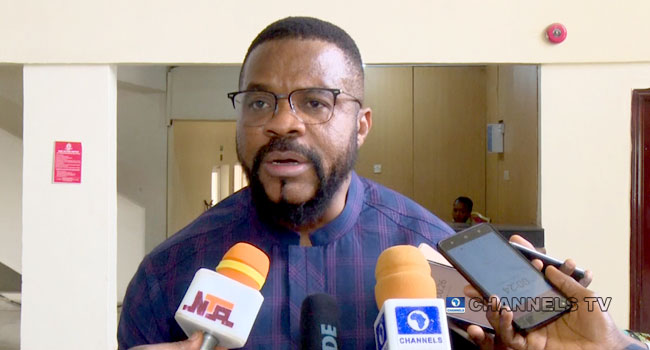The Nigerian Office for Trade Negotiations (NOTN) has underscored the need for a strategic policy on COVID-19 compliance and trade related interventions by government and stakeholders.
Mr Victor Liman, Acting Chief Trade Negotiator and Director-General NOTN, made this known on Tuesday at the official launch of a policy document titled `A Nigerian Policy Roadmap: Perspectives and Insights’.
He acknowledged the fact that COVID-19 pandemic and its impact caused massive trade deficits and losses on key sectors especially in oil and gas, agriculture, manufacturing, tourism, aviation, construction and real estate sectors.
He noted that the massive trade deficits were recorded because the tools and mechanics that supported free trade were not working in full capacity, adding that they were either stalemated, destroyed or in indeterminate state of abeyance.
“With the foregoing in mind there is an urgent need for a strategic policy on COVID-19 compliance and trade related interventions as `the new normal’ is now upon us,’’ he said.
Highlighting the importance of the new document, he said that it would sustainably grow the economy and recover loses adding that it would help to grow the economy and be ready for the African Continental Free Trade Area (AfCFTA).
Liman said the need for the document came from the critical strategic relevance of the rationale while the government created the office in 2017 with lead mandate to coordinate all trade and related trade negotiations.
According to him, its mandate includes to effectively coordinate Nigerian trade policy and other sectoral polices as well as provide a level of synchronised session for policies to create coherence in both the formulation and engagement with such.
He said that the official launch of the document was also to commemorate the three years existence of the office and mark the first anniversary of the signing of the AfCFTA.
Liman while recalling that Nigeria signed the AfCFTA agreement on July 7, 2019 in Niamey, Republic of Niger, said it was important to engage and take stock of Nigeria’s preparedness on the AfCFTA implementation.
According to him, it is not a policy but a roadmap that provides some levels of framework, guidelines for stakeholders, public officers, policy makers and private entities to utilise.
He said that the document was drawn up as a preparatory work and compliment to be a reference source for further engagement of critical stakeholders
“It is also formulated based on the recommendations of the World Trade Policy review of Nigeria and outcome of the nationwide AfCFTA consultation.
“It captures increase in the share of Gross Domestic Product (GDP), to 50 per cent hopefully in the next couple of years and employment share in the trade-related industry to 28 per cent by 2023.
“It builds on the 2002 trade policy regime capturing contemporary changes, development and recent COVID-19 challenges.”
In view of this, he said that a process was ongoing on the review of the 2002 trade policy adding that Nigeria could not be operating within the auspices of 2002 trade policy into the first century.
“It will help in scaling up manufacturing and making Nigeria one of the top 15 largest economies,’ he said.
The trade negotiator called for a broad multi sectoral and coordinated response by Nigeria internally and regionally to sustain the economy, recover losses and grow the economy toward sustainability.




